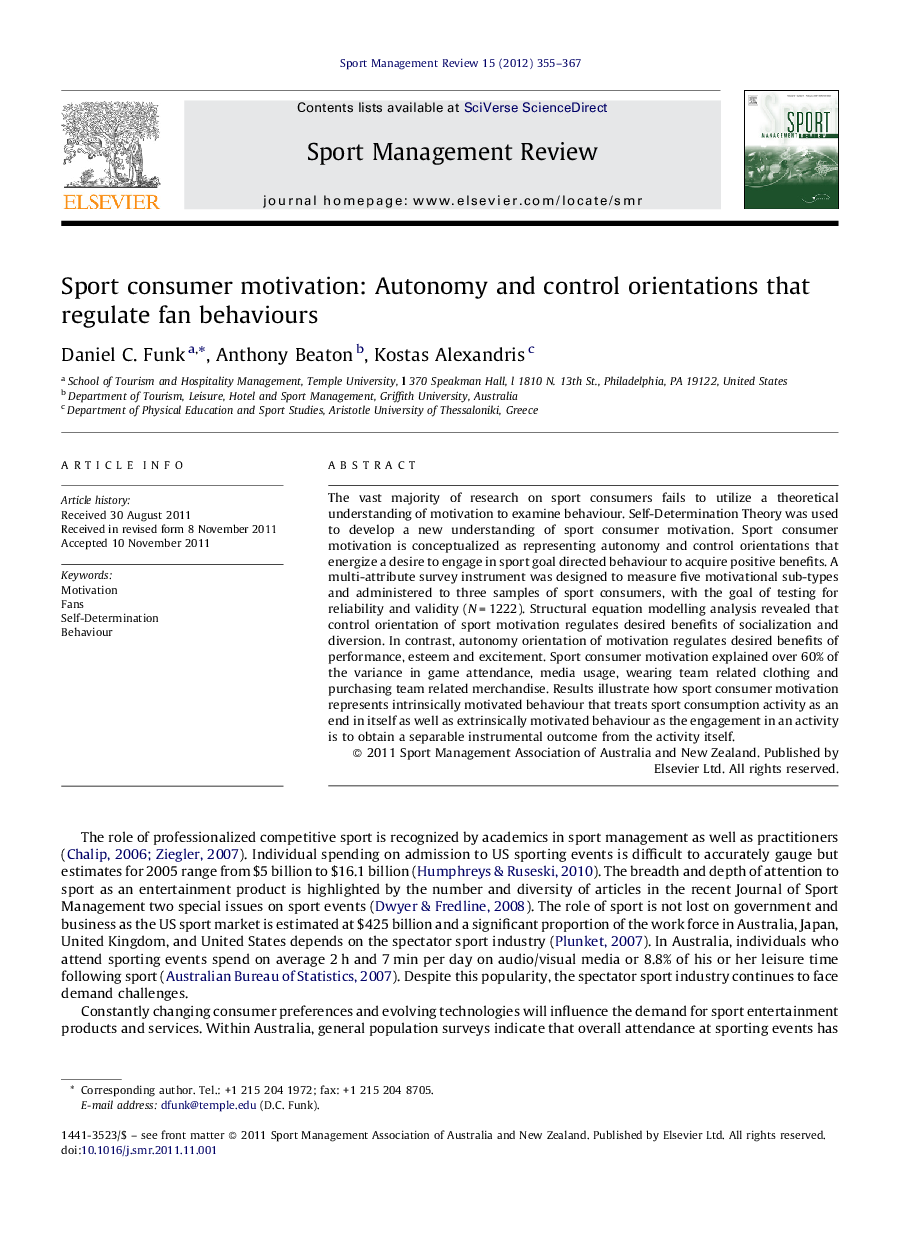| Article ID | Journal | Published Year | Pages | File Type |
|---|---|---|---|---|
| 141129 | Sport Management Review | 2012 | 13 Pages |
Abstract
The vast majority of research on sport consumers fails to utilize a theoretical understanding of motivation to examine behaviour. Self-Determination Theory was used to develop a new understanding of sport consumer motivation. Sport consumer motivation is conceptualized as representing autonomy and control orientations that energize a desire to engage in sport goal directed behaviour to acquire positive benefits. A multi-attribute survey instrument was designed to measure five motivational sub-types and administered to three samples of sport consumers, with the goal of testing for reliability and validity (N = 1222). Structural equation modelling analysis revealed that control orientation of sport motivation regulates desired benefits of socialization and diversion. In contrast, autonomy orientation of motivation regulates desired benefits of performance, esteem and excitement. Sport consumer motivation explained over 60% of the variance in game attendance, media usage, wearing team related clothing and purchasing team related merchandise. Results illustrate how sport consumer motivation represents intrinsically motivated behaviour that treats sport consumption activity as an end in itself as well as extrinsically motivated behaviour as the engagement in an activity is to obtain a separable instrumental outcome from the activity itself.
Related Topics
Social Sciences and Humanities
Business, Management and Accounting
Business, Management and Accounting (General)
Authors
Daniel C. Funk, Anthony Beaton, Kostas Alexandris,
